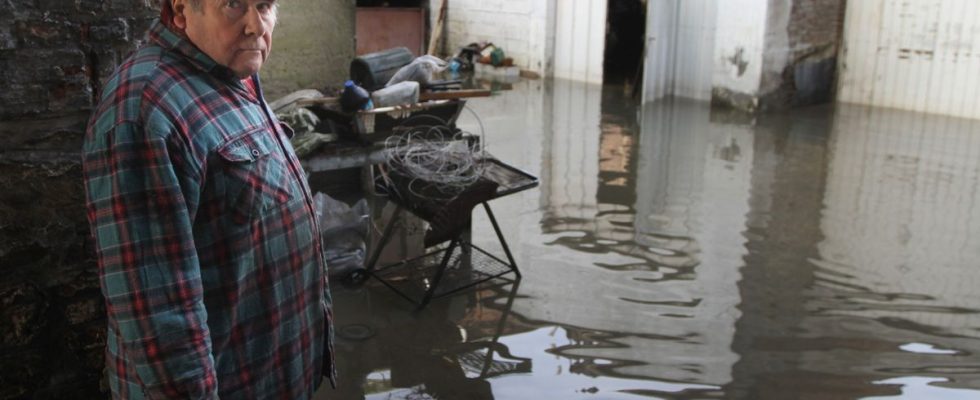A crisis that avoids another? Since the beginning of November, the western part of Pas-de-Calais has been facing a series of climatic events that are hard to see the end of. Two successive storms, torrential rains, river floods and historic floods… A combination of disasters with, as a result, damage which will amount to tens of millions of euros. The terrible irony of these events is that they occur while the department is just emerging from a long period of drought and restrictions on the use of water resources. In their current misfortune, the inhabitants of Pas-de-Calais can nevertheless hope to escape a new drought which was inevitably looming in 2024.
At the end of last August, the prefect of Pas-de-Calais decided to “keep all of the department’s watersheds in a state of drought vigilance”. This decision was accompanied by use restriction measures water “to limit the impacts of the drought, while waiting for the recharge of the water tables which will not arrive until mid-November at best”. In his September hydrological situation bulletin, the Hauts-de-France Regional Directorate for the Environment, Development and Housing (Dreal) noted a general deficit in precipitation in the Artois-Picardie basin, a continued draining of groundwater and a drop in the average monthly flow of the majority of rivers. Although the situation tended to improve during October, it nevertheless remained fragile. “It’s clear, we have come out of the drought well today,” recognizes Florence Habets, hydroclimatologist and research director at the CNRS.
The specter of a drought in 2024 recedes
According to her, the summer rains had already allowed a recharge of the water tables at depth, even if it remained tense in places and on the surface. “There, given what has fallen over the past month, we are observing a strong rise in the water tables of Pas-de-Calais,” says the scientist. A phenomenon that has been amplified in recent days since “the water infiltrates more quickly towards the water tables than the soils are wet,” she explains. In certain cases, in Blendecques in particular, data from the Ades site (national portal for access to groundwater data) even show water tables flush with the surface and overflowing. “There is a chance that these aquifers will continue to recharge over time, especially since seasonal forecasts predict more rain in the region, and the signals are consistent, which is quite rare,” notes the hydroclimatologist.
“By spring, the aquifers will be largely recharged and, inevitably, water withdrawals from the aquifers will be less compared to the expected precipitation, particularly for sowing,” the hydroclimatologist further estimates. According to her, if the forecasts are confirmed, “we can expect that the situation will not be tense at all in terms of drought, at least until the beginning of summer and even in the event of a warm spring.” Without asserting that Pas-de-Calais is completely safe from a drought in 2024, the scientist is optimistic.
These long floods and droughts have a “relentless side”
The counterpart of this is that the floods are likely to continue in a localized manner for a few more weeks. Tuesday, the President of the Republic promised the market gardeners of the Audomarois marsh to work on simplifying the system of cleaning watercourses and encouraged them to find solutions to push the water back to the sea. “Cleaning can have consequences quite negative aspects. By accelerating the circulation of water, we risk bringing water back more quickly to flat areas downstream and not necessarily to the sea,” says the specialist. Especially since the sea is not necessarily the perfect outlet: “The sea level rises, even more so when there is a storm, causing a rising effect at the level of the estuaries,” explains Florence Habets. Accelerating the transfer of water downstream when it cannot be released to the sea because it is high does not solve the problem. »
What should you actually do when you have overflowing water tables? “Unfortunately, there is not much to do,” laments our expert. These floods and long droughts have a “relentless” side. For Florence Habets, real solutions must be put in place well in advance. A point of view which echoes that expressed by Emmanuel Macron on Tuesday, when he explained that “the adaptation of our country to climatic events will force us to review our functioning”. In the areas concerned, “the habitat is not suitable because it is the climate that is changing”, recognizes the hydroclimatologist. So when the president assures the victims that they will always be able to live in the Audomarois marsh, the scientist cannot imagine it without adapting their houses.

